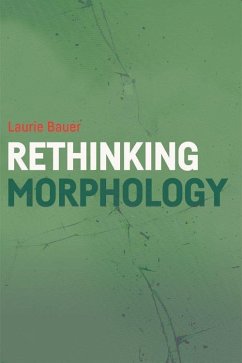
Rethinking Language Policy
Versandkostenfrei!
Versandfertig in über 4 Wochen
121,99 €
inkl. MwSt.

PAYBACK Punkte
61 °P sammeln!
Headline: Rethinks the presentation of a theory of language policy and management by starting with the individual speaker rather than the nation Blurb: Drawing on four decades of research, Bernard Spolsky reflects on earlier models that he proposed and presents an updated theory of language policy that starts with the individual speaker instead of the nation. In this book, he surveys the language practices, beliefs and planning efforts of individuals, families, public and private institutions, local and national activists, advocates and managers, and nations. He examines the diversity of lingu...
Headline: Rethinks the presentation of a theory of language policy and management by starting with the individual speaker rather than the nation Blurb: Drawing on four decades of research, Bernard Spolsky reflects on earlier models that he proposed and presents an updated theory of language policy that starts with the individual speaker instead of the nation. In this book, he surveys the language practices, beliefs and planning efforts of individuals, families, public and private institutions, local and national activists, advocates and managers, and nations. He examines the diversity of linguistic repertoires and the multiplicity of forces, linguistic and non-linguistic, which account for language shift and maintenance. By starting with the individual speaker and moving through the various levels and domains, Spolsky shows the many different policies with which a national government must compete and illustrates why national policy is so difficult. A definitive guide to the field, with a rich description of examples, this is essential reading for policymakers, stakeholders, researchers, and students of language policy. Key Features . Written by a world-leading expert in the field of language policy and management . Draws on a range of examples and case studies, including examples of threatened indigenous and minority languages throughout the world . Surveys the language practices, beliefs and planning efforts of families, education systems, neighbourhoods and the workplace, public institutions, local and national activists, advocates and managers, and nations Bernard Spolsky is Professor Emeritus in the English Department at Bar-Ilan University, Israel.












